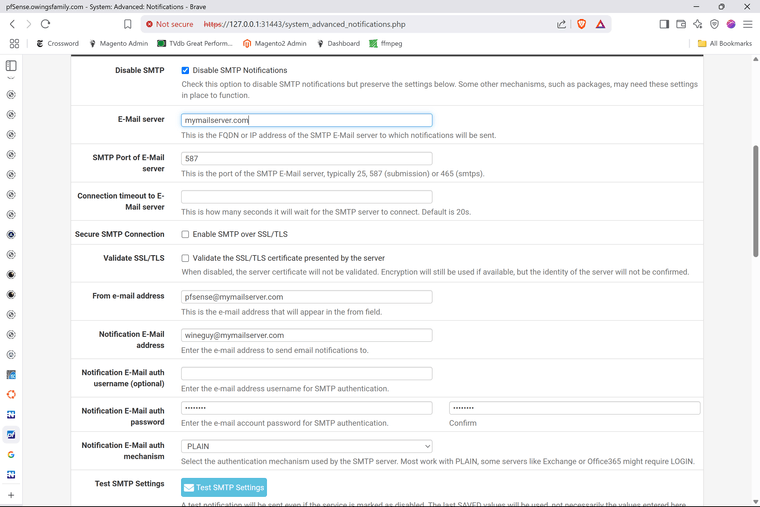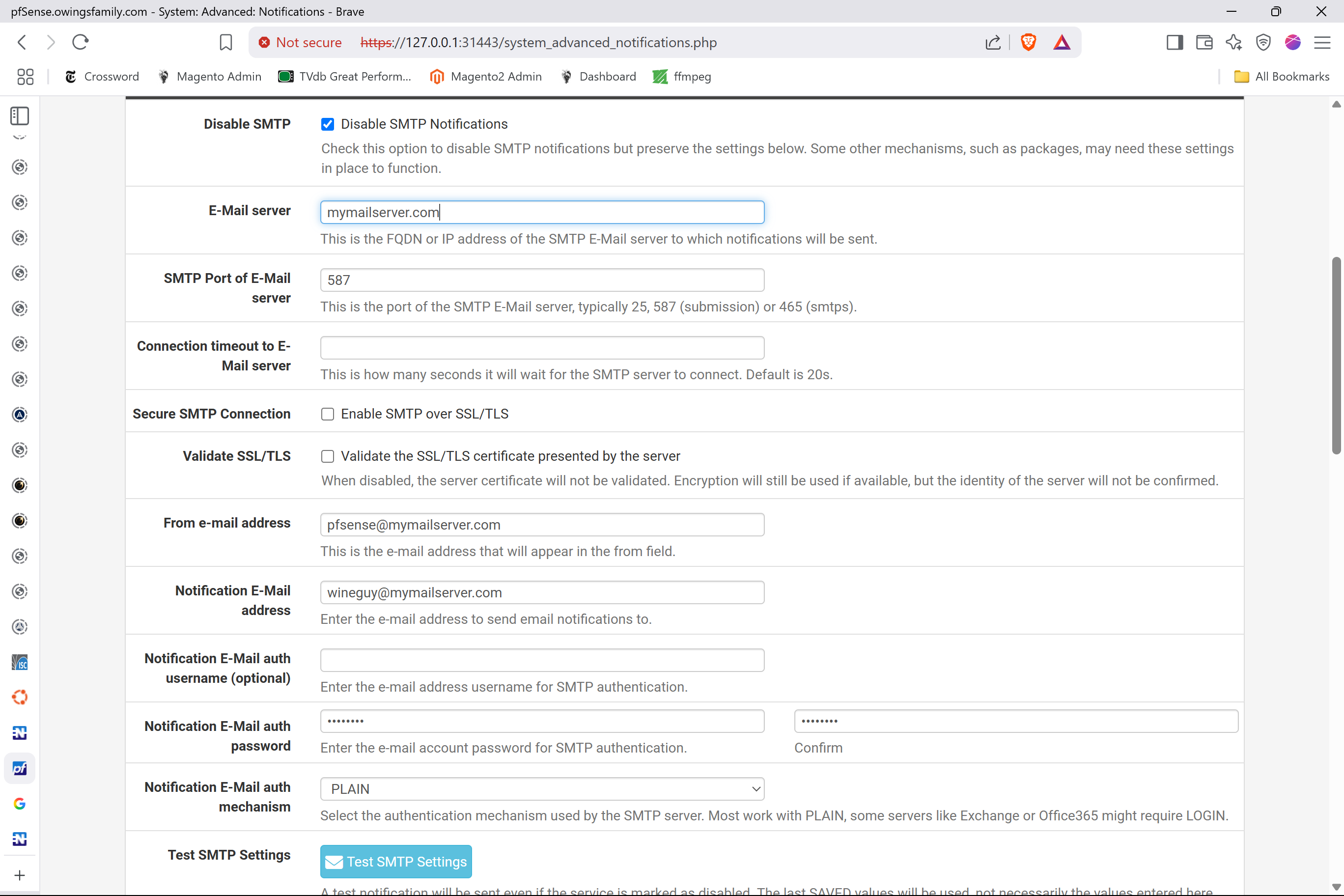Unable to configure notifications using port 587
-
I'm running a Netgate 3100 with 24.11-RELEASE (arm). I'm attempting to configure notifications using port 587 and get the error: :SMTP: Invalid response code received from server (code: 530, response: 5.7.0 Must issue a STARTTLS command first)"
My email server showed that it never got a STARTTLS from the Netgate 3100.
To verify, I ran tcpdump - and verified that Netgate 3100 with 24.11-RELEASE (arm) connects, EHLOs, gets the menu from my mailserver, then jumps straight to MAIL FROM. It never sends STARTTLS.My configuration settings are below. I thought this was supposed to be automatic. What am I missing? Why is Netgate 3100 with 24.11-RELEASE (arm) not sending STARTTLS when port 587 is chosen?

-
It should. However it only does so when authentication is enabled and it looks like you haven't entered a username. That could well be stopping it trying to authenticate. Though I'm not sure I've ever tested that.

-
Thank you!
When I entered the username, it did indeed issue the required STARTTLS.
I expected that it would default to the 'From email address', which would make a nice enhancement.
But I also expected from RFC-6409 that the mail client would issue the STARTTLS even without an authenticated sender rather than sending the MAILFROM in plaintext. So, another nice enhancement would be to require a username and password when port 587 is selected.
I'm just whining at this point. I really do appreciate your help!
-
@wineguy said in Unable to configure notifications using port 587:
I expected that it would default to the 'From email address', which would make a nice enhancemen
Noop.
The "From" is the mail address from which you send the mail.
This can be different one as the USER login credential, needed for submission over port 587 (smtp with authentication) to work. These two can be identical, true.@wineguy said in Unable to configure notifications using port 587:
So, another nice enhancement would be to require a username and password when port 587 is selected.
'587' or submission means (imho - check with RFC ?) : must authenticate.
You could go one step beyond :
Set up your mail server to use plain TLS, or SMTPS, normally over port 465. Most FAI's - look how gmail does things - don't use - or should I say : don't enforce the use of 587 anymore. It's TLS all the way = port 465, which means : from byte zero all is TLS.
You can pick any port actually, as it would be used by your mail clients, the ones you control.
